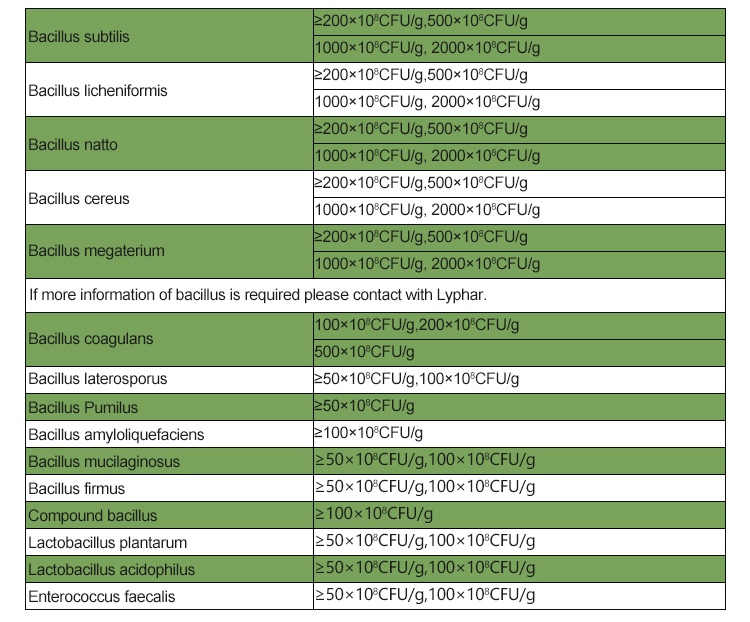As of my last update in September 2021, Bacillus megaterium is a Gram-positive, rod-shaped bacterium that is found in soil and other environmental niches. It has been studied for its potential applications in various fields, and some of the potential benefits of Bacillus Megaterium include:
Industrial applications: Bacillus Megaterium is known for its ability to produce a wide range of industrially important enzymes, such as proteases, amylases, lipases, and cellulases. These enzymes have various applications in the food, detergent, textile, and biofuel industries.
Biofertilizer: Some strains of Bacillus Megaterium have been studied as potential biofertilizers. These bacteria can fix atmospheric nitrogen and solubilize phosphates, making them beneficial for enhancing plant growth and nutrient uptake.

Bioremediation: Bacillus Megaterium possesses the ability to degrade various pollutants and contaminants, including hydrocarbons and heavy metals. Therefore, it has potential applications in bioremediation, helping to clean up environmental pollution.
Probiotic potential: Some strains of Bacillus Megaterium have been studied for their probiotic properties, which means they may have beneficial effects on gut health when consumed as supplements or added to animal feed.
Bioplastic production: Bacillus Megaterium has been investigated for its ability to produce bioplastics, which are biodegradable and renewable alternatives to conventional petroleum-based plastics.
Agricultural applications: Some strains of Bacillus Megaterium have shown plant growth-promoting properties by producing phytohormones and promoting nutrient availability in the soil, which can enhance crop yields.
Insecticidal properties: Certain strains of Bacillus Megaterium have shown insecticidal properties and could be potentially used as a biocontrol agent against pest insects.
It’s important to note that while Bacillus Megaterium shows promise in various applications, further research and testing are needed to fully understand and harness its potential benefits in real-world applications. As research advances, new applications and benefits may emerge, so it’s essential to consult up-to-date scientific literature and experts in the field for the latest information.

Effects of Bacillus Megaterium
As of my last update in September 2021, Bacillus Megaterium is a Gram-positive, rod-shaped bacterium that is generally considered to be non-pathogenic and safe for humans and the environment. It is commonly found in soil and various other natural environments. It has been extensively studied and used in various biotechnological applications due to its ability to produce enzymes, bioactive compounds, and other valuable products.
When it comes to adverse effects, the use of Bacillus Megaterium in biotechnological applications and industrial processes generally requires specific safety assessments to ensure it does not pose any risks. However, in rare cases or under specific circumstances, some potential adverse effects could be:
Infection: In immunocompromised individuals or patients with existing health conditions, Bacillus Megaterium might lead to opportunistic infections, although such cases are quite uncommon.
Allergic reactions: Some individuals may experience allergic reactions when exposed to Bacillus Megaterium, similar to other environmental bacteria.

Respiratory issues: Inhaling large amounts of Bacillus Megaterium spores or dust in occupational settings could potentially lead to respiratory issues in some people.
It is essential to handle any bacterium, including Bacillus Megaterium, with proper care and follow recommended safety protocols to prevent accidental exposures or adverse effects.
Please note that scientific research is continually evolving, and new information may have emerged beyond my last update. If you have specific concerns or questions about Bacillus Megaterium, I recommend consulting with a microbiologist or relevant expert who has access to the latest information and research in the field.
